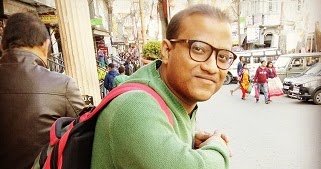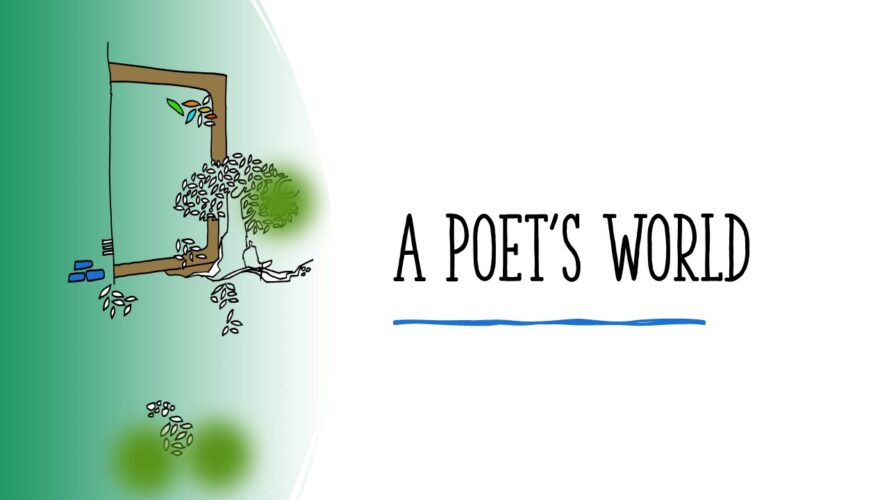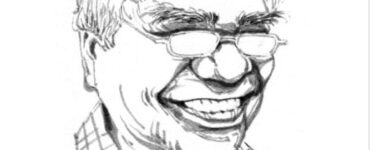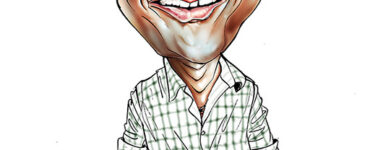S.A.B: My journey as a poet started at the strangest of places. A few friends of mine and I were at a seminar at Chandigarh, where during the afternoon session, there was a poetry reading and interactive session with Arundhati Subramaniam. Before she went on stage, she spent some time with us, talking about our poetic journey and aspirations if any. That afternoon was an eye opener in more ways than one. For the first time, I realised that writing poetry was not and should not be merely taken as a hobby or a pastime. There should be a sense of discipline and decorum involved, an integrity towards the art. Not to mention, the responsibility of the artist towards the society and politics of the times.
Since then, I have tried my best to hone my craft. Understanding that writing poetry is as much an aesthetic exercise born out of inspiration, as it is an exercise in craftsmanship is important. I have tried to pay more attention to the latter in the recent years. I have at times, stuck to the immortal lines of Paul Valery, ” Poems are never finished, only abandoned…”. So the number of drafts of a single poem has increased over the years, trying to chisel out the rough edges. I think, it is also important to be patient with your work. Let the lines/ words find a peace of their own in the space of the poem. I would pay less attention to this aspect of my writing earlier. Nowadays, I am more than happy to sit with a poem for a couple of days, trying to bring in a balance between the lyricality and the core argument and the images. I think this has been the single most important development to my poetic self.
2. Can you name a recurring image or metaphor in your work, and explain its significance?
S.A.B.: To answer this question, I would begin with an anecdote that my mother would share in my childhood and something that has stayed with me for long. During the 1971, Bangladesh Liberation War, there was a huge influx of refugees from the other side of the border into West Bengal. My mother’s family would reside in North Bengal and there was this particular family from the then East Pakistan who had come over to this side. There was this young man, who had been differently abled and whose mental growth and maturity was not in sync with the years. He would often look at the moon and wonder loudly to most passersby that the moon in their country and in this new one looked exactly the same. Apparently innocuous and almost bordering on the funny, I have now realised the significance of those words.

In a world, which is becoming more divisive as I write this, we have become more and more obsessed with physical borders and the desire to categorise and box people and societies on the basis of their identity and ethnicities. And yet, there are moments when such borders melt away, the walls crumble and markers of belonging coalesce. I am very intrigued by these, worried to a great extent to the word that our future generations will inhabit. Such thoughts have made the image of maps and the moon appear and reappear in my work quite frequently. The other reason why, especially the astral bodies of the moon and the stars feature, is because I have realised, like many more before and with me, of the absolute insignificance of humans in the face of the larger forces of the universe. \
3. What’s your writing routine, ritual or process?
S.A.B: I have been generally very erratic with my writing routine. I understand it remains one of my shortcomings and to be able to remain true to writing, one needs to follow a decently strict regime. I for one, start with a central idea or thought that I know can be or needs to be developed into something that would be able to speak to many. My writing schedule is generally very late at night. It is then that I prepare the first draft of the poem, jotting down the skeletal framework. Almost always, that is the starting point and never the final poem that I am content with. I sit with the poem the following night and it is then that a more rigorous exercise of pruning the skeleton, adding flesh and sinews to it is done. By the time I reach the third draft, I think I am more or less happy with the way things have turned out.
4. How do you see yourself in the intersection of the world we live in and the poems you write in your solitude? Do you think poetry has the power to influence social change?
S.A.B: I am not a huge believer in the maxim “art for art’s sake”. Rather, I am a firm advocate and proponent of the duties and responsibilities that an artist has towards his immediate surroundings. As the loose translation of the German saying goes, ” Art is a weapon.” And one might not write strictly subversive political poems to pitch oneself as a crusader against the ills of the society. Even the poems written in and talking about love and solitude and longing, can deal with the ideas of alienation, cultural sensitivity in its own way. Since politics and the notions of power are ubiquitous, I think even the deeply personal is also profoundly political.









Add comment